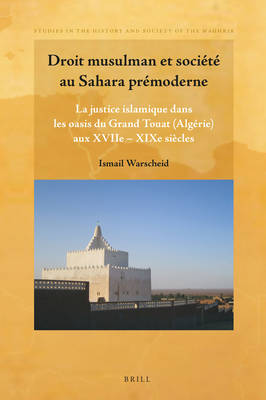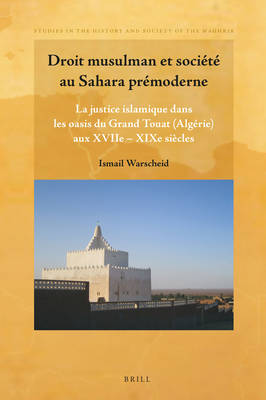
- Afhalen na 1 uur in een winkel met voorraad
- Gratis thuislevering in België vanaf € 30
- Ruim aanbod met 7 miljoen producten
- Afhalen na 1 uur in een winkel met voorraad
- Gratis thuislevering in België vanaf € 30
- Ruim aanbod met 7 miljoen producten
Zoeken
Omschrijving
Dans Droit musulman et société au Sahara prémoderne, Ismail Warscheid reconstitue la pratique du droit musulman dans les oasis du Grand Touat en Algérie entre le XVIIe et le XIXe siècles.
In Droit musulman et société au Sahara prémoderne, Ismail Warscheid investigates the practice of Islamic law in the oasis of Tuwāt in southern Algeria between the seventeenth and nineteenth centuries.
In Droit musulman et société au Sahara prémoderne, Ismail Warscheid investigates the practice of Islamic law in the oasis of Tuwāt in southern Algeria between the seventeenth and nineteenth centuries.
Specificaties
Betrokkenen
- Auteur(s):
- Uitgeverij:
Inhoud
- Aantal bladzijden:
- 318
- Taal:
- Frans
- Reeks:
- Reeksnummer:
- nr. 9
Eigenschappen
- Productcode (EAN):
- 9789004340169
- Verschijningsdatum:
- 25/05/2017
- Uitvoering:
- Hardcover
- Formaat:
- Genaaid
- Afmetingen:
- 155 mm x 236 mm
- Gewicht:
- 598 g

Alleen bij Standaard Boekhandel
+ 296 punten op je klantenkaart van Standaard Boekhandel
Beoordelingen
We publiceren alleen reviews die voldoen aan de voorwaarden voor reviews. Bekijk onze voorwaarden voor reviews.








